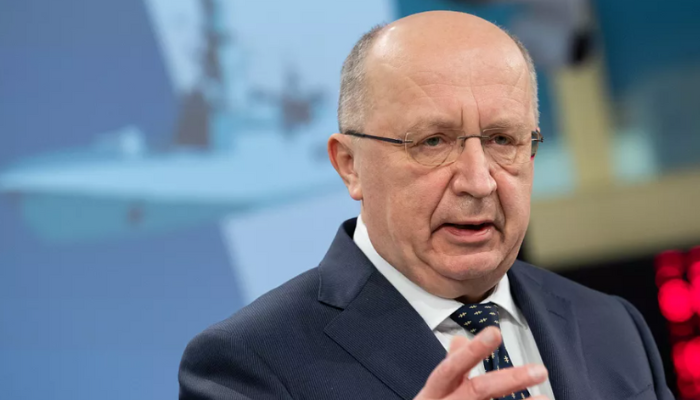
The European Union is currently not prepared to issue Eurobonds to enhance its defense capabilities, according to Andrius Kubilius, the EU Commissioner for Defense and Space. Despite growing threats and the urgent need to strengthen its defense systems, Kubilius argues that the EU must focus on the tools already available and avoid adding more debt through joint bonds.
EU’s Defence Spending Strategy
In March 2025, the European Commission revealed its “Rearm Europe” plan, outlining a strategy to ensure EU defense readiness by 2030. This plan aims to ramp up spending and improve the EU’s defense capabilities to deter potential military threats. However, Kubilius emphasized that relying on Eurobonds to fund these efforts would only increase the EU’s debt burden.
Why Eurobonds Are Not a Solution
Kubilius explained that issuing Eurobonds would raise the EU’s debt levels, forcing member states to handle the repayment. He pointed out that the EU is already facing substantial debt obligations due to its pandemic recovery funds, which need to be repaid annually. The additional debt caused by issuing Eurobonds could complicate financial management within the Union.
“Rearm Europe” Plan and Financial Goals
The EU’s defense plan aims to mobilize up to €800 billion over the next four years. The proposal includes increasing national defense spending by up to 3.5% of GDP, translating to €650 billion, and making use of private investments to bolster the defense industry. Kubilius advocates for using the financial mechanisms already in place under the “Readiness 2030” plan, urging member states to avoid additional borrowing through Eurobonds.
Investment in the European Defense Industry
A key component of the EU’s strategy is boosting European defense production. Kubilius stressed the importance of purchasing defense products from within the EU and countries like Ukraine, aiming for self-sufficiency and reducing reliance on external suppliers. This plan also includes partnerships with countries such as the UK and Canada to increase production capabilities.
Broader Definition of Defense Spending
The EU is also considering expanding the definition of defense spending. Countries like Spain and Italy have argued that defense spending should include areas such as cybersecurity, counterterrorism, and climate change initiatives, which are critical to ensuring broader security. However, Kubilius has stated that these areas should be handled separately from traditional defense funding.
Addressing Russia’s Military Threat
With Russia ramping up its defense production, Kubilius stressed the need for the EU to invest in real military capabilities. Russia’s defense production is set to exceed 1,550 tanks, 5,700 armored vehicles, and 450 artillery pieces in 2024, increasing the urgency for the EU to develop stronger defense systems. Kubilius emphasized that the EU’s primary focus must be on enhancing its military readiness to deter potential aggression.
Conclusion: Sustainable Solutions for EU Defense
While the EU is not ready to issue Eurobonds, it is clear that the Union must act quickly to strengthen its defense capabilities. Kubilius’ stance underscores the importance of using available resources to fund defense spending and avoid excessive debt. As the EU aims to meet its defense goals by 2030, it must focus on sustainable, long-term solutions that balance military preparedness with financial health.
